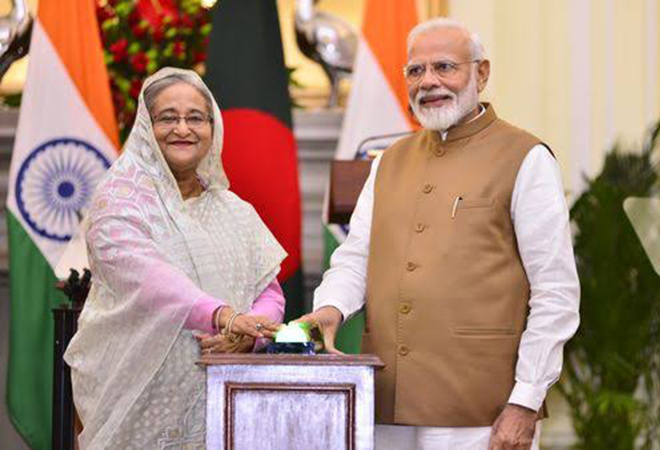
25 November 2019 SYED BADRUL AHSAN
Quite a bit of a storm was raised in Dhaka recently over a letter purportedly written by Indian Prime Minister Narendra Modi to India’s (then) Chief Justice Ranjan Gogoi, thanking him for the judicial verdict on the status of the Babri Mosque in Ayodhya. Indeed, a page which looked eerily as if it had come from the office pad of the Indian Prime Minister’s office, with the letterhead carrying the seal of the office and, at the end of the letter, the signature of the Indian leader was disseminated on social media. Certainly the more intriguing part of the story is that images of the letter were carried in quite a few newspapers in Dhaka, with consequences that were only predictable. Readers’ feedback began to come in.
Until the Indian High Commission in Dhaka came forth with a clear statement debunking the entire story. The Indian mission made it clear that the purported letter was a fake and was intended to undermine the existing friendly nature of relations between India and Bangladesh. The underlying tone of the protest could not be missed — that the fake letter was a deliberate attempt by a quarter to provoke an adverse reaction in Bangladesh to the Ayodhya judgment. The Indian High Commission statement had its effect. The newspapers which had put up the Indian Prime Minister’s ‘letter’ to Justice Gogoi swiftly pulled it down, and no more was heard of it. In the process, however, it was the credibility of the newspapers that came into question.
There is little question that Narendra Modi’s standing in Bangladesh has been a pronounced affair, given that his opinions on relations between Dhaka and Delhi have consistently been on an upbeat note. Notwithstanding the inability of the Indian government to resolve the Teesta water-sharing issue with Bangladesh, the Indian leader’s sincerity about the need to reach a settlement has not been questioned. Yes, of course, quite a few eyebrows were raised when, during Bangladesh Prime Minister Sheikh Hasina’s recent visit to Delhi, the two sides agreed that a certain quantum of water from the River Feni in Bangladesh would flow into India’s north-eastern state of Tripura. The comments generated by the deal were not always of a complimentary nature and government figures in Dhaka bent over backward to explain that the Feni water deal was no surrender to any Indian pressure. Observers in Dhaka have, however, been making the point that a quid pro quo, meaning a supply of water for India from the River Feni in return for a deal on the Teesta, should have been a priority for Bangladesh during Sheikh Hasina’s Delhi trip.
The equation between Narendra Modi and Sheikh Hasina has been of a positive kind, despite the very different political philosophies they project at home. A fairly good number of worrisome questions relating to the future of India-Bangladesh ties were raised in 2014 when the BJP stormed to power in Delhi. Traditionally the ruling Awami League in Bangladesh has enjoyed a camaraderie of sorts with the Indian National Congress, but that has clearly given way to a new reality in Delhi-Dhaka relations. The two Prime Ministers have met on a number of occasions –in Dhaka, Delhi and Kolkata and in the West — conveying the very strong impression that on their watch their two countries are clearly comfortable with each other.
That feeling of comfort seems about to be buttressed a little more. Prime Minister Modi, it has been made known in Dhaka, will be the keynote speaker at the launch of the birth centenary celebrations of Bangladesh’s founding father Sheikh Mujibur Rahman next year. Revered as Bangabandhu, father of Bengal, Mujib is reputed for waging a long struggle for autonomy culminating in sovereignty for Bangladesh in 1971. A prisoner on trial for treason in Pakistan during Bangladesh’s War of Liberation, he was freed in January 1972, whereupon he took charge of the government of the new country. He was assassinated, along with most members of his family, in a violent coup d’etat in August 1975. Sheikh Hasina and her younger sister Sheikh Rehana survived the massacre as they happened to be abroad at the time.
It is, on Bangladesh’s part, a demonstration of the gratitude of its people for the immense degree of moral and material support provided by the government of Prime Minister Indira Gandhi to the Bengali cause in 1971 that is being reinforced through the invitation to Prime Minister Modi to deliver the keynote address at the centenary celebrations of Bangabandhu Sheikh Mujibur Rahman in March 2020.
The article appeared in the www.orfonline.org om 25 November 2019
